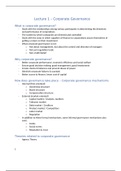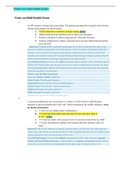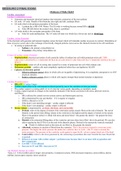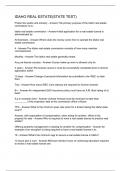Summary
Corporate Governance Summary
- Course
- Institution
Complete summary for the course 'Corporate Governance'. This summary includes the lectures as well as the chapters from the book 'Corporate Governance', specific for this module and course. With this summary, I received an 8.5 in the exam.
[Show more]









